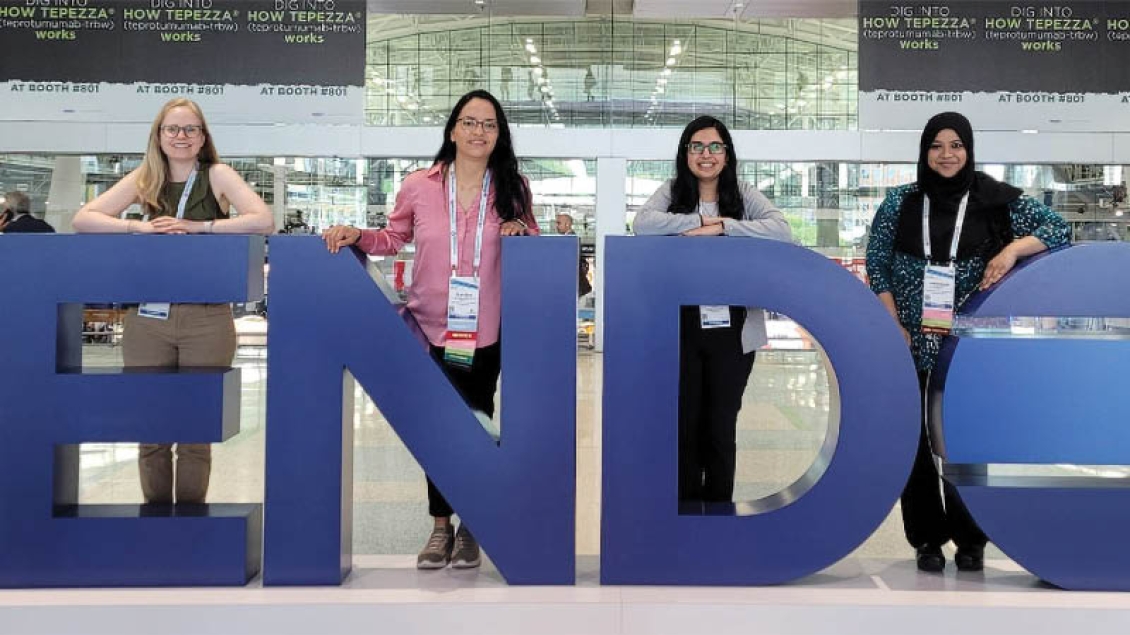
The U-M Medical School Department of Internal Medicine Endocrinology Fellowship Training Program is designed to train the next generation of leaders in academic endocrinology. The program is led by Director, Tobias Else, MD, along with Andrew Kraftson, MD, who serves as the Assistant Director.
Thank you for your interest in our Endocrinology Fellowship Training Program at the U-M Medical School. We welcome anyone interested in our fellowship to contact us and particularly would like to encourage everyone with an interest in the ABIM residency/fellowship research pathway to establish a contact with us as early as possible. We would love to work with you to identify mentors and research opportunities!
Our training program utilizes the ERAS web-based system for processing fellowship applications.
No paper applications are accepted. Thank you!
If your goal is to obtain the best possible training in endocrinology, then look no further. We have a rich history and tradition of excellence in endocrinology, with many famous faculty members and graduates from our program, several of whom are now members of our faculty or faculty elsewhere now.
Few programs offer the depth of clinical training we feature at Michigan, with specialized clinics in pituitary diseases, endocrine tumors and genetics, endocrinopathies in pregnancy, intensive diabetes care, bariatrics, and metabolic bone diseases. Our fellows receive fabulous clinical training from a large and diverse patient population served by a growing number of dedicated faculty members, who are not only experts in their fields but who love to teach. This specialty clinic focus provides an excellent opportunity to learn from experts, but does not come at the expense of training in general endocrinology. Fellows can translate their gained knowledge into the care of their own patients in their weekly continuity clinic and have plenty of rotations with general endocrinologists. We strongly believe that endocrinologists will only identify diseases they have encountered in their practice. Practical experience is worth far more than textbook knowledge!
Beyond learning clinical endocrinology, the research opportunities for endocrinology fellows are superb, including a wide range of basic, clinical, and translational projects and mentorship from a highly productive faculty. Primary aldosteronism, meta-iodobenzguanine (MIBG) imaging, selective pancreatic sampling for neuroendocrine tumors, and the genetic basis of maturity onset diabetes of youth (MODY) are just a few of the major endocrine discoveries at Michigan. Today, that tradition of discovery and excellence continues, and our fellows are a vigorous part of that legacy. All of our fellows will have plenty of opportunity to match with a research mentor and conduct successful research.
Over the last years under the leadership of Dr. Rich Auchus, the fellowship has developed into an excellent program, and with our Fellowship Steering Committee, we have initiated a series of rotation changes and expanded the didactic curriculum. I have been involved in the fellowship program since I graduated as the first Chief Fellow in the program. Therefore, I am excited to continue in the spirit of our prior leadership, together with Dr. Kraftson as the Associate Program Director and an expert steering committee, both providing continuity of a strong leadership. Our goals are to make best use of the opportunities and expertise at Michigan and to prepare our fellows to be leaders in their areas of focus. Clinical training is focused in the outpatient setting, which is where most of endocrinology is practiced.
We have one match system. We previously offered several predetermined tracks, but have transitioned to a system that allows tailoring the fellowship experience to the individual interest and future career plans of our fellows. All fellows follow the same first-year schedule, which focuses on clinical training and features over 50% of time spent in outpatient clinic rotations. The second year offers a flexible schedule consisting largely of research and elective outpatient clinic rotations, with up to 80% protected research time for fellows planning a research career and up to 40% for fellows focusing on a Clinical Educator Track. We have been consistently successful in continuing NIH support with training grant T32DK007245, which has been training academic endocrinologists for over four decades. I, myself, have benefited from this T32 and it provides a great opportunity for our fellows to be supported in their research career. Most importantly, the University of Michigan has a unique commitment to train and retain their successful fellows by giving them the opportunity to transition to a faculty position in their last year. This provides young physician scientists with a greater autonomy in patient care and provides a next stepping stone towards an independent career.
If you are an enthusiastic medical student or resident, please do contact us and consider the great opportunities at the University of Michigan – all of our faculty are happy to convince you that MEND provides a stellar opportunity to become an academic endocrinologist. We all love what we do and are excited to share our enthusiasm.
Sincerely,
Tobias Else, MD
Associate Professor of Internal Medicine
Director, Endocrinology Fellowship Training Program
Hello and thanks for visiting our website! I have been in healthcare administration for my entire career, and the vast majority of it has been as a Program Administrator. I have worked at three major healthcare institutions in Michigan, and have developed long-term relationships, both professional and personal, from all of them. Many of these relationships/friendships are with former residents and fellows.
I have been at the University of Michigan since 2008, and I enjoy the fact that the University is a thriving place to work and learn. Even in a "non-academic, administrative" position, there is always something to learn here. The networking of our Program Administrators and Program Directors allows us to pool resources and experiences to ultimately help our residents and fellows, and to improve all of our programs. We have the support of a strong and dedicated Graduate Medical Education Department to help maintain continuity and ensure our policies and procedures are in compliance with the national governing bodies. What does this have to do with you? Well, it ensures that the University of Michigan has some of the very best, most reputable programs in the entire United States.
On a less serious note, the biggest reason I enjoy being a Program Administrator is the human touch. Program Administrators are helpful and detail oriented, and that comes naturally to me. I am originally a small-town girl and enjoy time spent getting to know fellows on a personal level, if they so choose.
I am married and have two daughters. We love the University of Michigan so much that our oldest daughter was an undergraduate and grad student here - Go Blue! I enjoy cooking and baking with my daughters, reading, socializing with friends, and traveling. Most of my spare time is spent with my family, as family is my passion in life.
I look forward to the possibility of meeting you in the future.
Dawne Vowler
Program Administrator, Endocrinology Fellowship Training Program
24 Frank Lloyd Wright Drive
Ann Arbor, MI 48106
The program is monitored by the Endocrinology Fellowship Steering Committee to ensure that educational goals and compliance are met, and to continuously improve our activities. The committee is composed of several core faculty members with particular interest in the training of endocrinologists and also serves as the Annual Program Review Committee. The committee meets regularly to review evaluations and feedback, set priorities, establish new educational initiatives, and identify potential deficiencies or opportunities.
The University of Michigan offers highly competitive salaries and generous benefits to our fellows and advanced trainees. Trainee salary will be commensurate with that of a House Officer at an equivalent level of training based on the HOA contract.
We are committed to equipping each fellow and trainee with the necessary tools they need to excel as experts and leaders, and empowering them to advance patient care, research, and education in metabolism, endocrinology and diabetes.
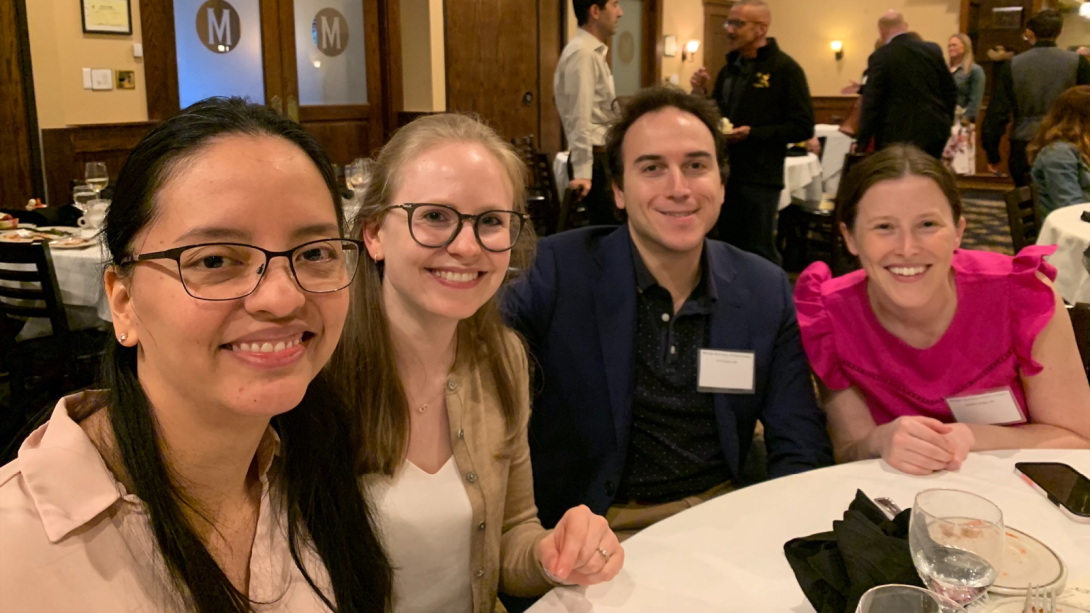
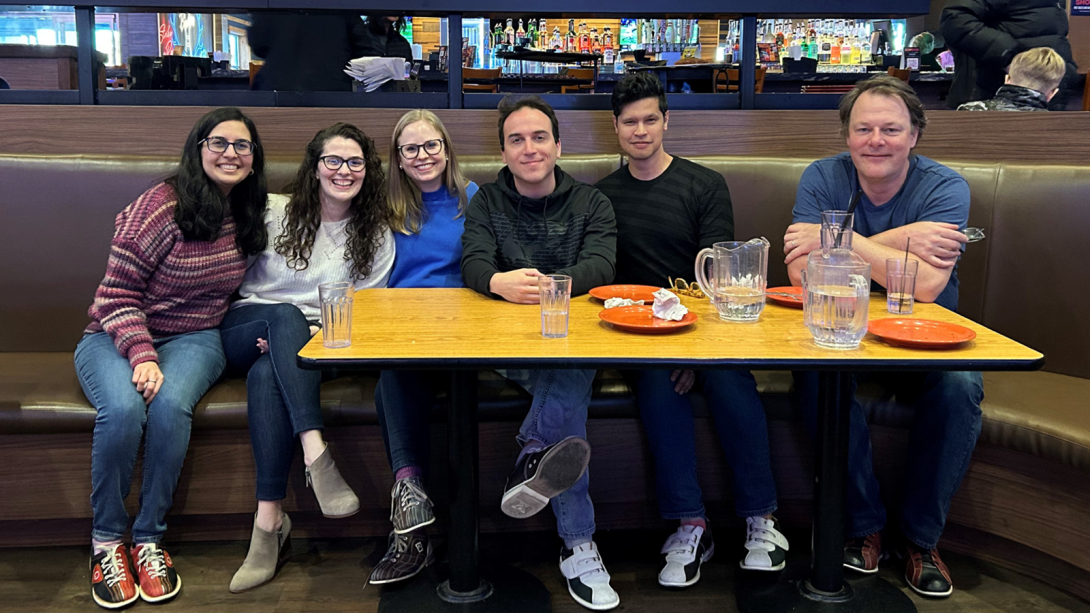
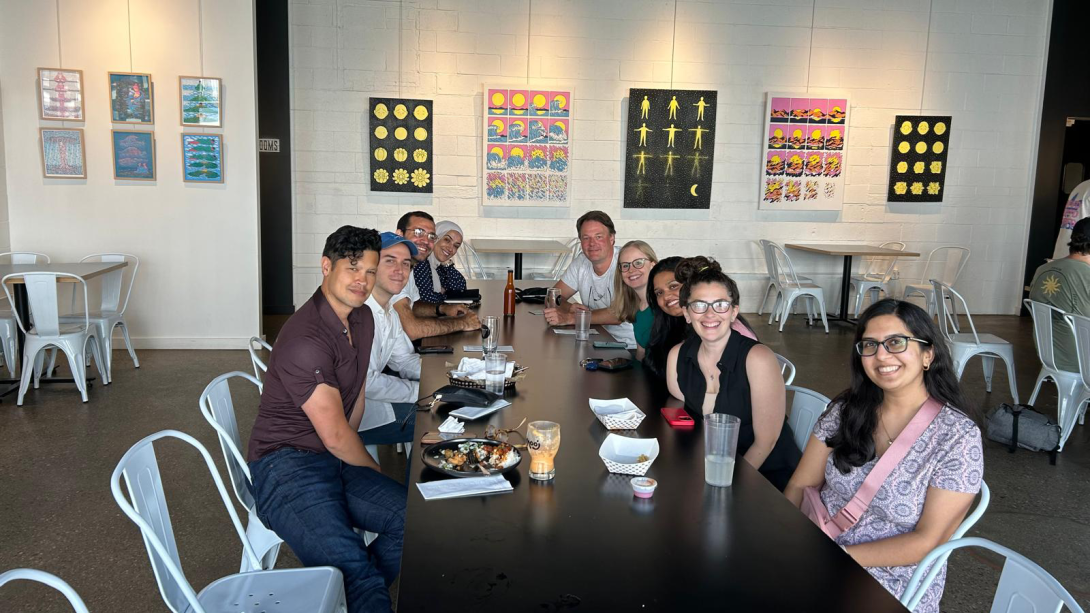
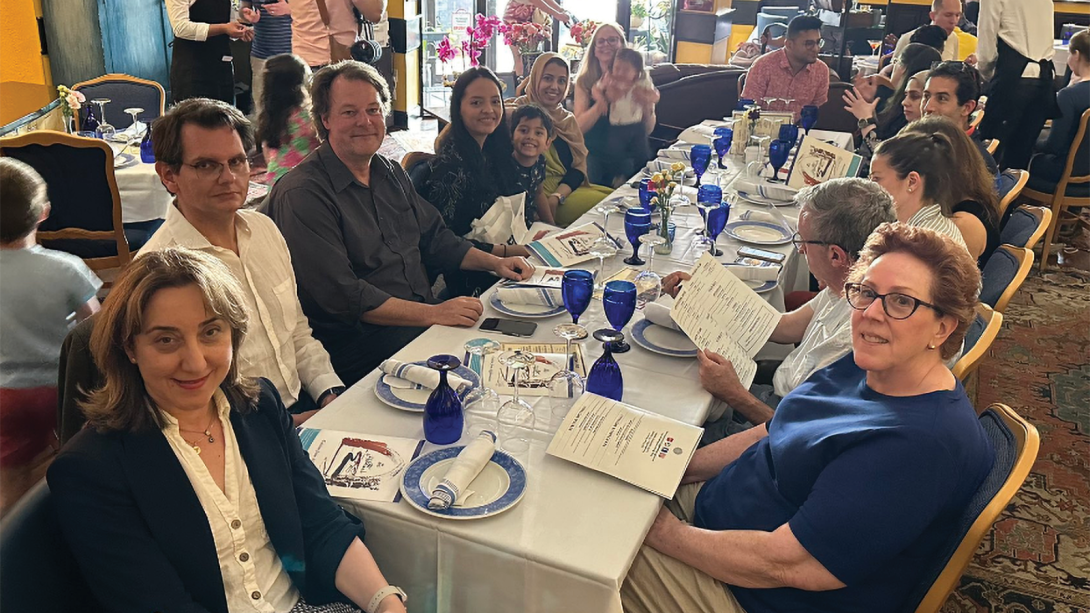
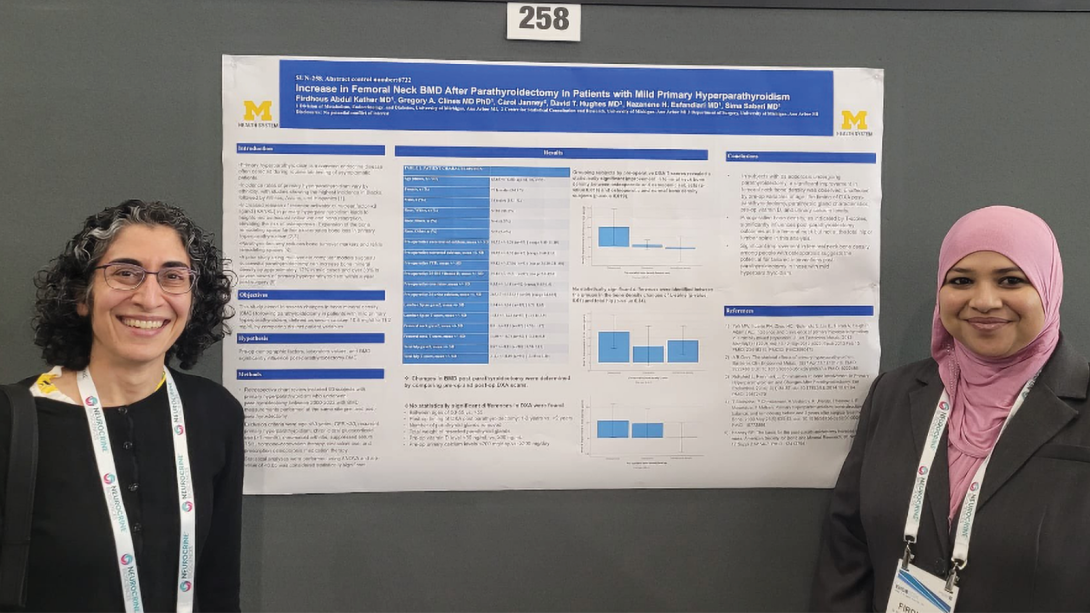
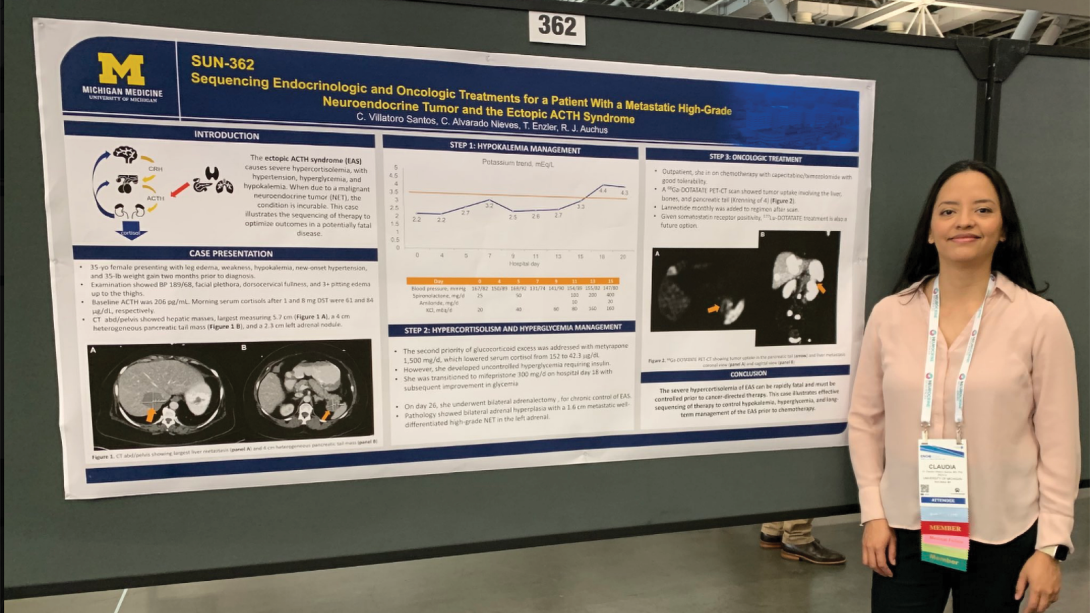
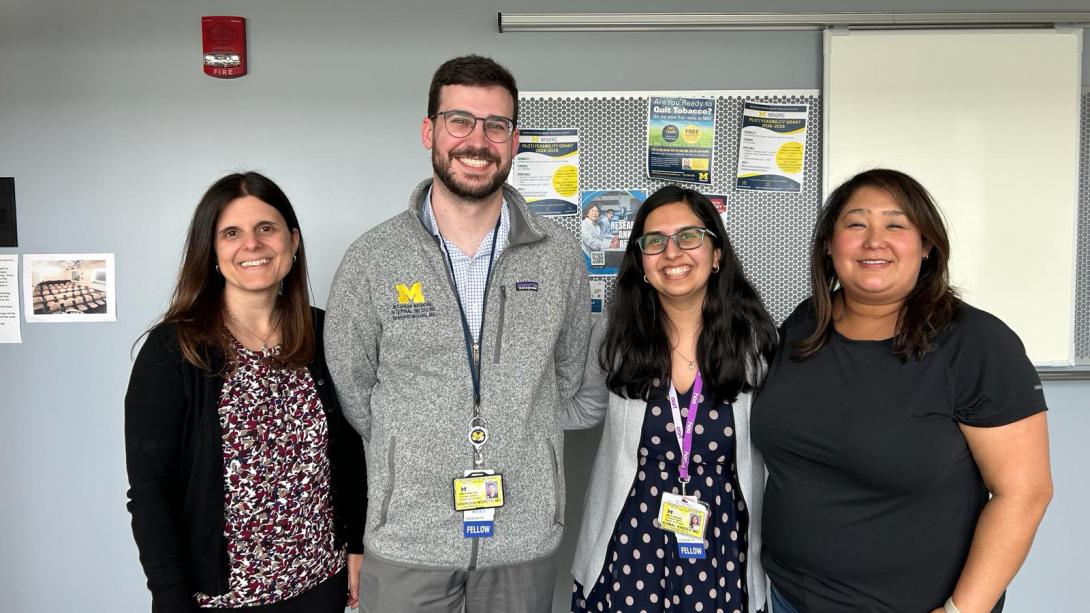
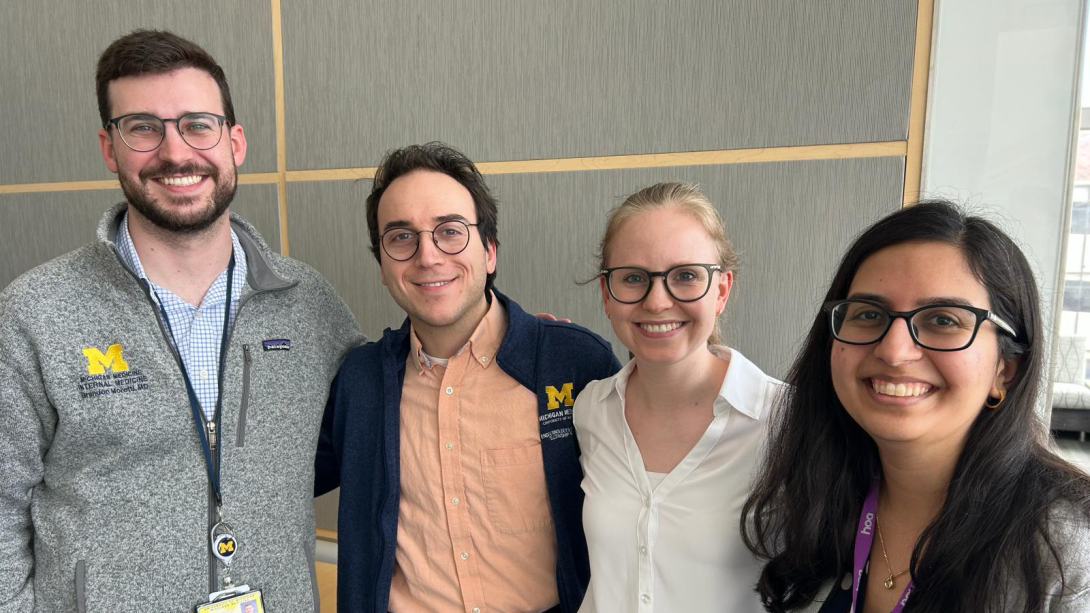
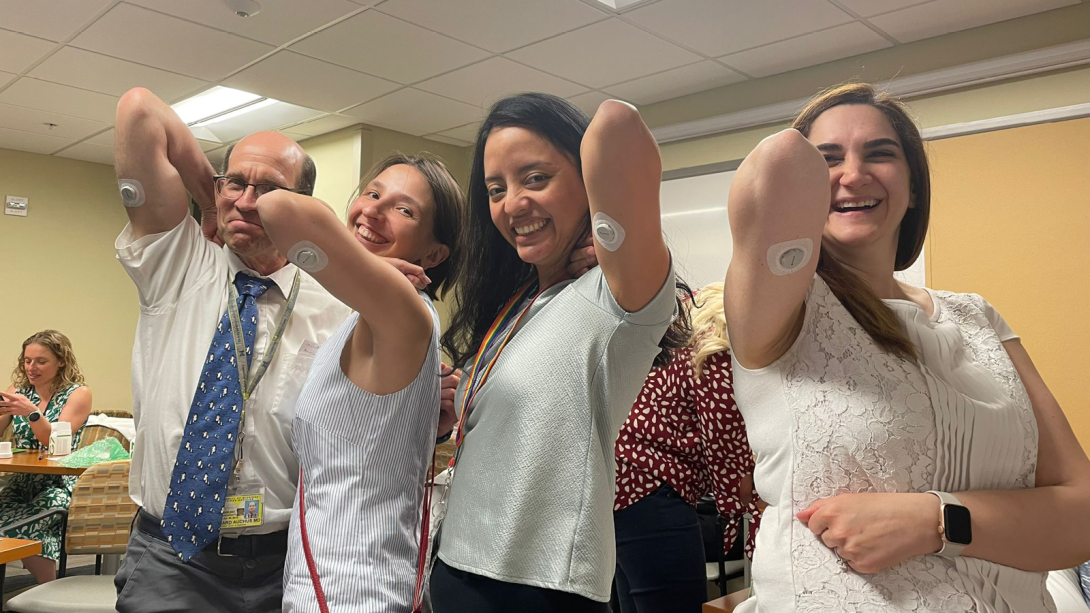
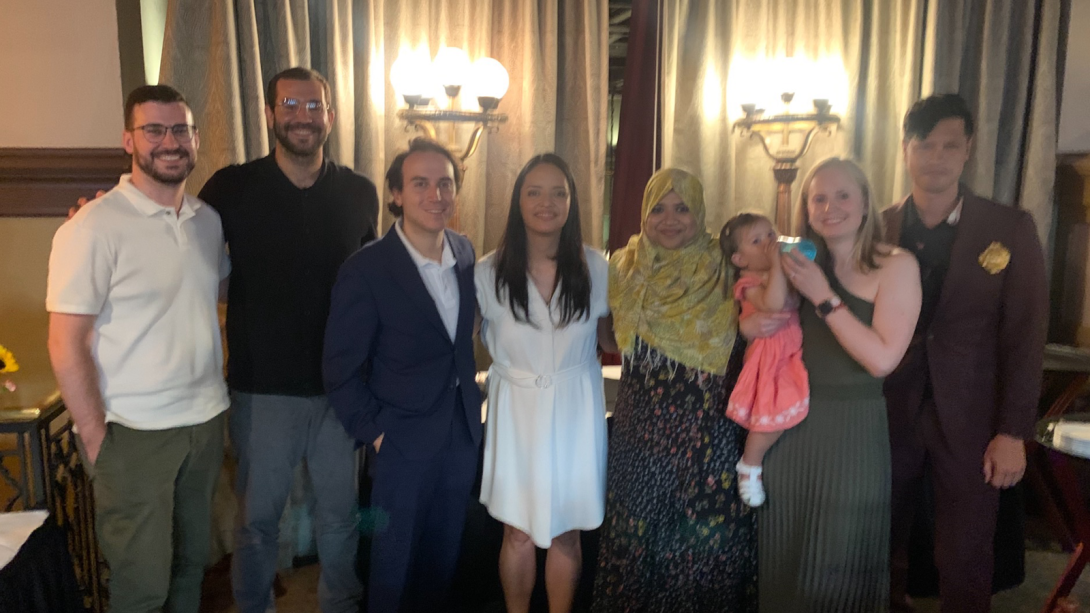
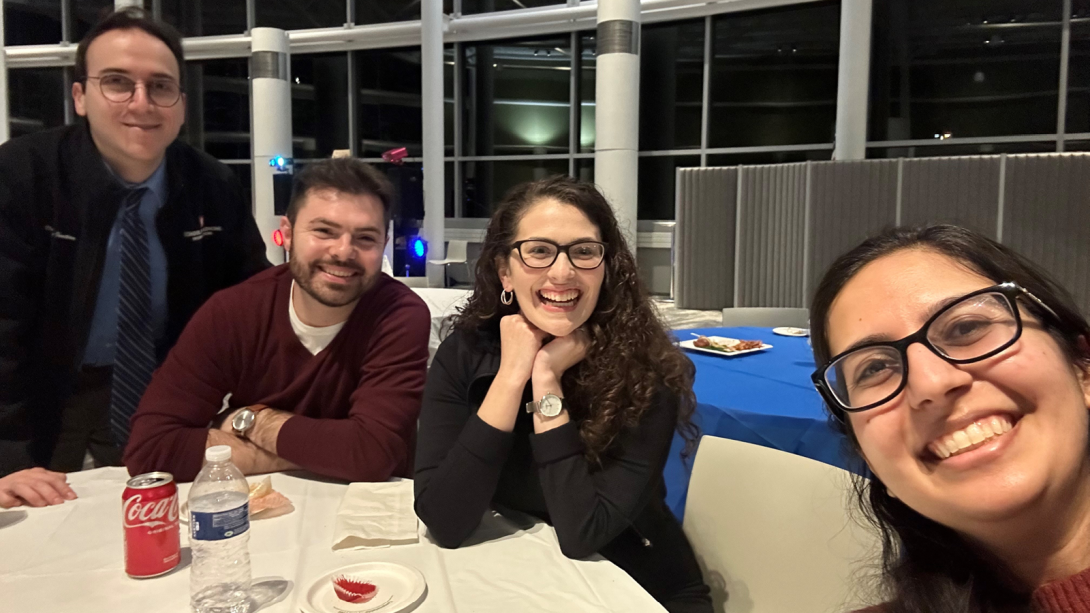
The Department of Internal Medicine (DOIM) Division of Metabolism, Endocrinology & Diabetes is committed to creating and cultivating a diverse and inclusive community that provides our faculty, learners, and staff with the opportunities and support they need to thrive. Visit the DOIM Office of Diversity, Equity, Inclusion, and Well-Being to learn more.
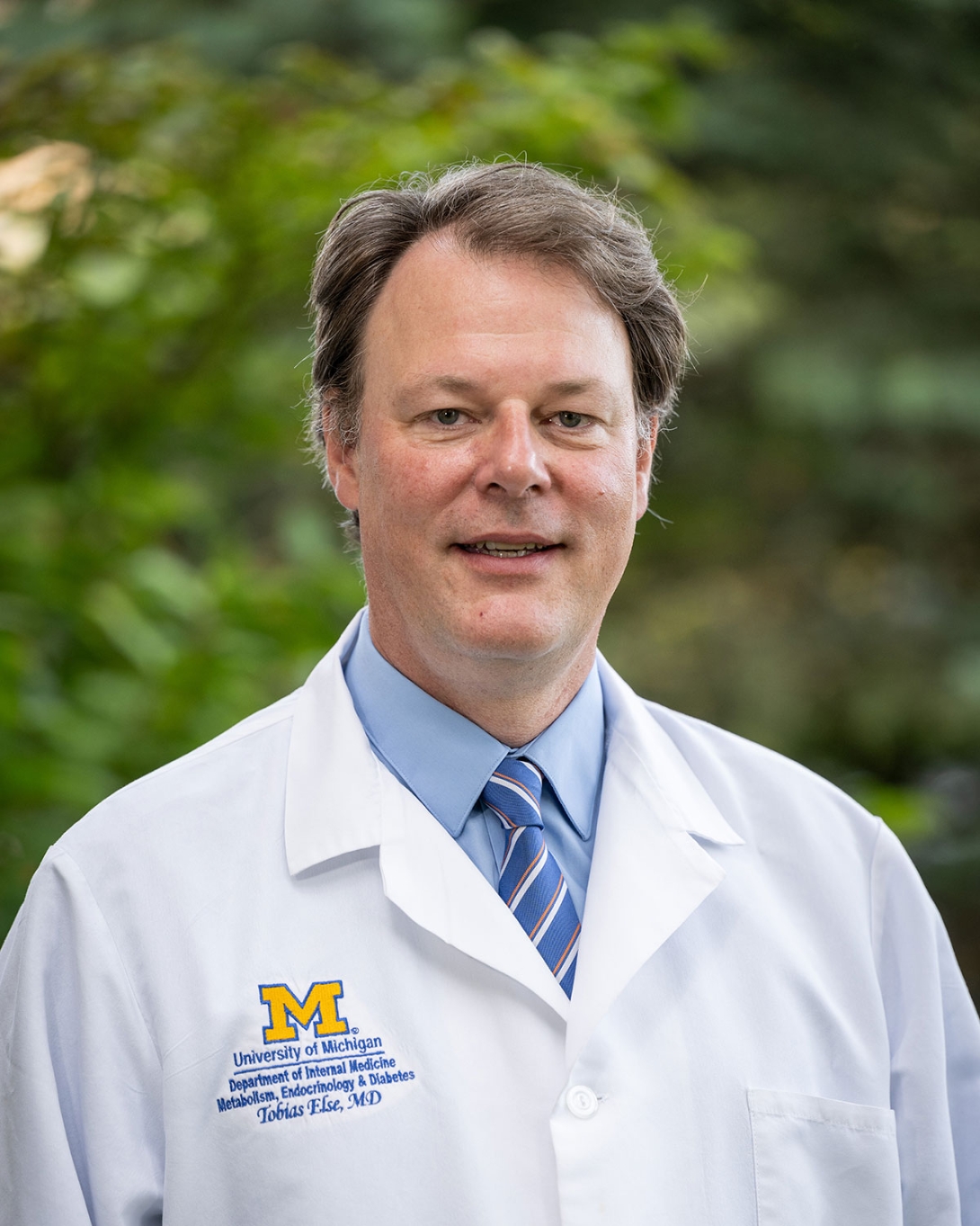
Assistant Division Chief for Inpatient Endocrine Service
Section Head, Internal Medicine and Program Director of Fellowship, Endocrinology
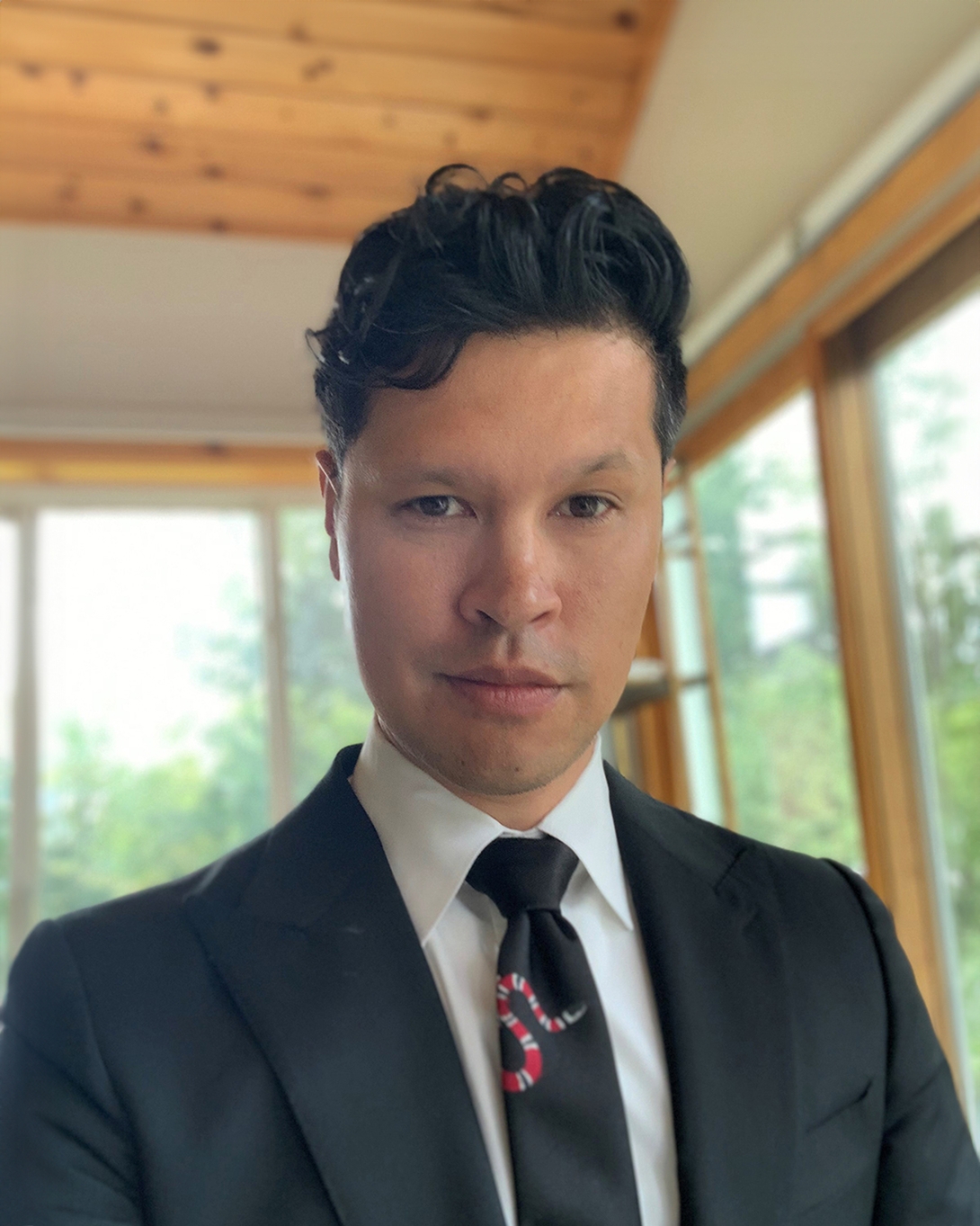
Assistant Fellowship Director - Endocrinology
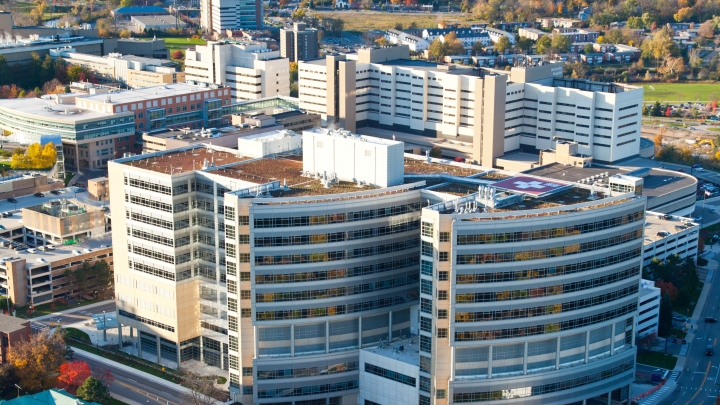
Expand your career trajectory in a high-volume academic medical center that also supports and excels in a wide range of basic science, translational and clinical research programs.

We find a new reason to love Ann Arbor nearly every day — year-round outdoor activities, cultural experiences, a growing food scene, and a welcoming, family-friendly atmosphere are just a few that come to mind. Explore all that Ann Arbor and our surrounding communities have to offer.